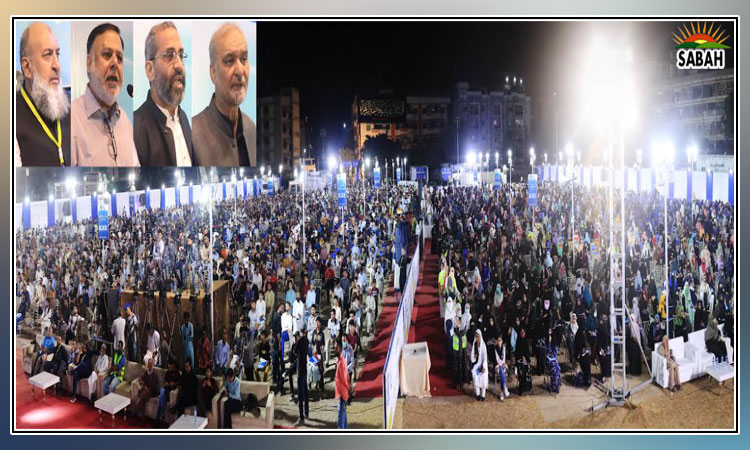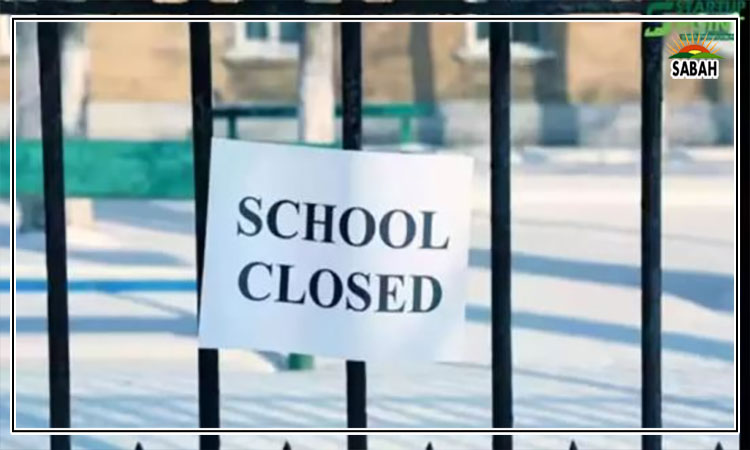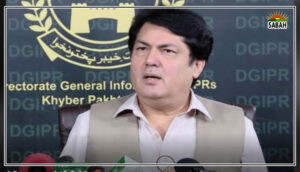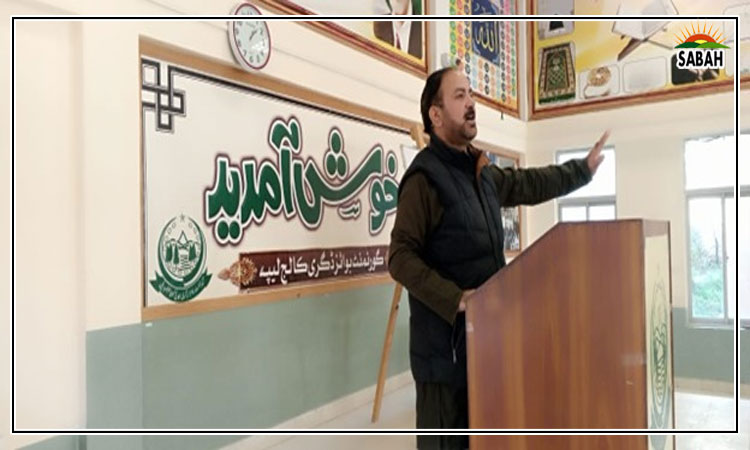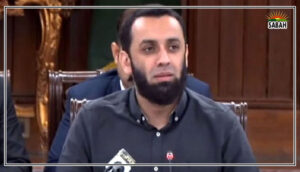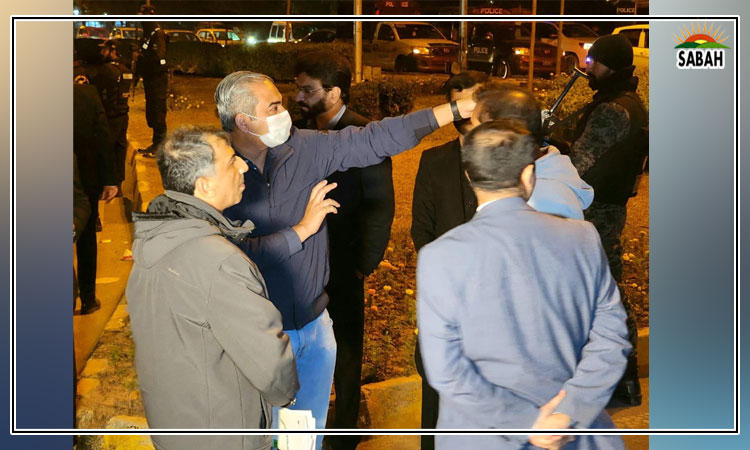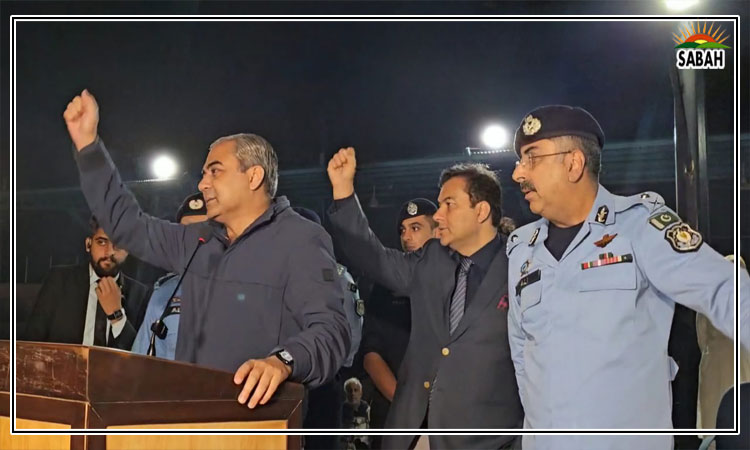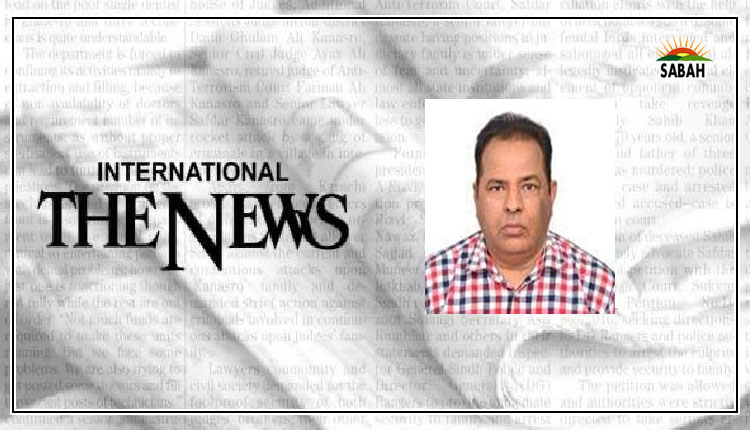Why is Nawaz Sharif upset?… Abdul Sattar
Former prime minister Nawaz Sharif recently expressed his disappointment with people, adding that they did not rise up when he, an elected prime minister, was ousted from power.
Many analysts believe that Sharif was kicked out from the power corridors of Islamabad for allegedly picking a fight with the powers that be, but his unceremonious departure was never vehemently protested. On the contrary, it was celebrated by his detractors who accused him of corruption and poor governance.
Many might justify these complaints arguing that Pakistani people tend to buy the propaganda of invisible powers who not only control the media but have always dominated the mainstream narrative. They are the ones manufacturing a lethal propaganda against politicians branding them corrupt, incompetent and illiterate.
Besides ordinary people, the intelligentsia, especially the Urdu media, also accepted the corruption narrative. Some celebrities also threw their support behind these powers, creating a negative impression against the political class.
This is not to suggest that the political class did not commit any mistakes, but it should also be acknowledged that they were never given a free hand. They were allowed to rule but never permitted to exercise the authority that rests with them constitutionally and whenever they tried to exert this authority, they were sent packing. The 1950s are just one example to show how frequently the countrys chief executives were kicked out from office in a disgraceful manner.
After the dark era of General Ziaul Haq, some expected that the powers that be must have learnt a lesson and would not create hurdles in the way of democratic forces. But first an artificial alliance was formed to counter Benazir Bhutto and later political forces were pitted against each other. Consequently, no party could complete its term.
When political parties forged unity by signing the Charter of Democracy, a third force was created which carried out a virulent propaganda against politicians to appease its creators. Today, the same third force is facing the wrath of the powerful elements.
The nefarious propaganda against the political class has been successful because of a generation of writers, columnists and intellectuals who sided with the mighty elements of the state. They repeated the mantra of corruption in a way that painted all elected representatives as corrupt.
They did not inform their readers that it was politicians who saved the country from a total disaster in the aftermath of the 1971 debacle. It was ZA Bhutto who managed to bring back over 70,000 soldiers languishing in enemies jails besides revitalizing the crippling economy that had been devastated because of the misadventure in former East Pakistan.
Even after this mishap, politicians gave a healing touch to the country, forging unity in their ranks to give the country the first constitution. After the long era of dictatorship, politicians in this country did away with the draconian eighth amendment that had paralyzed democracy. They came up with the 18th Amendment that went some way in addressing the grievances of people in the peripheries, but then courts were used to destabilize the democratic dispensation which sent two prime ministers packing.
Therefore, it is not good to celebrate the execution of any elected prime minister or the conviction of another in a concocted hijacking case. In the same way, no popular leaders incarceration should be enjoyed by his political rivals. The crackdown on any political party should be vehemently opposed. When it comes to such crackdowns, the political class should shun its differences and collectively defend the constitution.
To be fair, politicians also need to reflect upon their policies that do not benefit the people. Since economic policies are rarely pro-people, party supporters do not bother to take to the streets upon the ouster of their leader. Many political commentators believe that if politicians serve the people, their removal would fiercely be resisted.
We can find many examples where people moved heaven and earth when their elected leaders were dislodged. For instance, when the late Venezuelan president Hugo Chavez was thrown out of power, people took to the streets and ensured that the president was reinstated.
One of the factors that prompted people to protest was Chavezs pro-people policies. He served the urban poor and put curbs on the unbridled plundering of the countrys wealth by the oligarchs. His era witnessed improvements in health, education and sanitation. The overall human development also saw a boost.
Chavez managed to serve his people despite all the alleged machinations of the US that not only slapped the socialist country with crippling sanctions but also attempted to oust him from power. His policies enabled his supporters to strike back and win elections despite all hurdles created by opposition parties.
In Bolivia, Evo Morales was expelled from parliament in 2002, but this could not deter him from reconnecting with people and making it to the power corridors of La Paz. He won the presidential elections in 2005 with an overwhelming majority. Morales made hectic efforts to improve the living conditions of the countrys poor, increasing taxation on the hydrocarbon industry to bolster social spending, initiating projects to combat illiteracy, poverty and racial and gender discrimination. Morales government moved Bolivia towards a mixed economy, reduced its dependence on the World Bank and the International Monetary Fund (IMF), and oversaw a strong economic growth.
Now compare this with the governments of Nawaz Sharif and other PML-N leaders. They always supported the super-rich coming up with mega projects that enriched a tiny section of Pakistani society. The first government of Nawaz Sharif that came into power in 1990 ruthlessly followed neoliberal policies, rendering thousands of workers jobless. His second and third stints in power also saw the imposition of draconian policies of privatization, deregulation and liberalization.
Sharif was accused of selling state-run entities at throw-away prices. His ascendancy turned out to be catastrophic for the working class that saw the curbing of unions and the use of draconian laws against trade unionists who dared to oppose his pro-rich policies. Socially, he also strengthened the position of retrogressive forces.
One would assume that past mistakes would have been enough for the Sharifs, but Nawazs jumping into the Memogate issue and his governments draconian Peca amendments in 2016 suggested that the political class was not ready to learn anything.
Even now, his daughters government in Punjab is stifling dissenting voices by enacting new draconian laws while his close comrade Khawaja Asif is seeking strict implementation of the Secrets Act, which is a dark legacy of colonial laws. His brother, Prime Minister Shehbaz Sharif, is bent on selling all state-run entities, which is likely to render tens of thousands of workers jobless amidst a poverty rate of over 40 per cent in the country.
The Sharifs need to think why they cannot get rid of dynastic politics; their tendency to introduce dictatorial laws; and their failure in improving the human development index of the country. Putting blame on people would not help them, but a real change of policies can.
Courtesy The News


